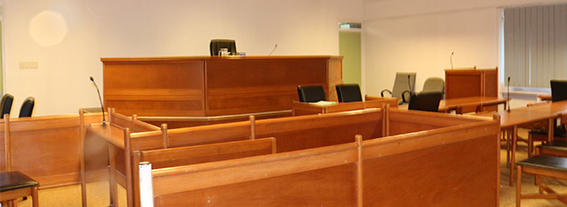Preparing for Court
- Think about the events you will be giving evidence about.
- What happened first? What happened next?
- Try to remember details like dates, times, descriptions, action, and exact words used.
- Please do not discuss your evidence with other witnesses.
- You are allowed to read the statement you gave to the police to refresh your memory of events. If you do not have a copy of your statement, you can ask the police or the DPP lawyer for a copy.
- Bring any statements, notes or documents you have about the case with you to court. When you get to court, inform the DPP lawyer what statements, notes, or documents you have brought with you.
At Court
- The police or the DPP lawyer may have arranged for you to meet at a particular location. If no arrangements have been made, go to the court registry and ask where you should wait. The court registry is often located next to the courtrooms or in the same building as the courtrooms.
- You may see other witnesses but you may not discuss your evidence with them.
- Courts usually sit from 9:15 AM to 4:00 PM, with breaks for morning tea and lunch (typically between 1:00 PM to 2:00 PM)
In the Courtroom
- You cannot be in court before you give evidence. You must wait outside the courtroom until you are called.
- Evidence must be given on oath. A court officer will read out the oath and ask you to swear on the holy book of your choice. If you do not wish to swear on a holy book, tell the court officer and another form of oath will be used.
- You will be asked to state your name and occupation. If you do not wish to state your address in public, inform the DPP lawyer beforehand.
- You will then be allowed to be seated whilst giving evidence. The DPP lawyer will ask you questions about the case. The accused’s lawyer or the accused person will “cross examine” you by asking you additional questions. The Judge or Magistrate may also ask you questions.
- Judges sit in the High Courts and are addressed as My Lord or My Lady. Magistrates sit in the Lower Court and are addressed as Sir or Madam.
Giving Evidence
If you find understanding or speaking the English language difficult, an interpreter will be available for you. You can then speak in your own language and the interpreter will repeat your answers in English for the court.
When you give evidence in Court
- Consider each question before you answer.
- If you do not understand a question, please say so.
- Take your time so you can give a complete answer.
- Do not guess. If you are not sure about an answer, say so.
- Do not repeat what someone else has told you unless you are asked to by the lawyer or the court.
- Speak clearly and loud enough so that your evidence can be understood and heard.
- After you have given your evidence and are excused by the court you are free to leave. You may remain in the courtroom, unless you are told not to by the Judge, Magistrate, or the DPP Lawyer.

